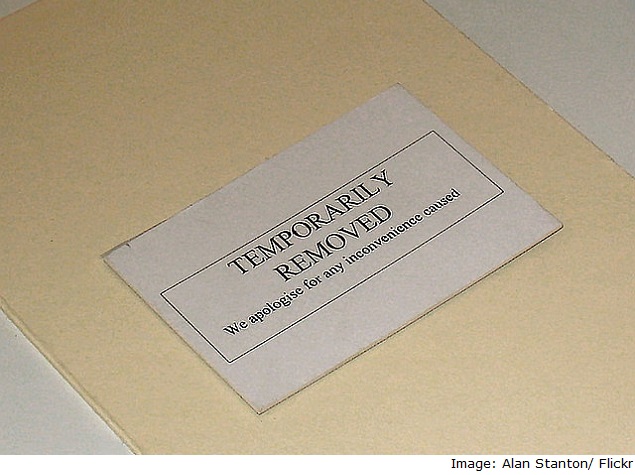- Home
- Internet
- Internet Opinion
- Websites Blocked: 5 Worrying Points Raised by the Latest Round of GOI Blocks
Websites Blocked: 5 Worrying Points Raised by the Latest Round of GOI Blocks

It has now been confirmed that the government was actually blocking websites in India, including video sharing sites like Vimeo and DailyMotion, along with more research and programming oriented sites like GitHub, Pastebin and SourceForge. Some of these sites have started to be unblocked now, but many remain inaccessible. The whole episode raises eyebrows, and the latest communication from the government does not do much to instil confidence.
The previous government had made some egregiously excessive blocks on websites in India, and in 2013, the government had blocked 254 URLs. It was rightfully criticised for this excessive behaviour by many in the media and also the opposition - the BJP is in power now, but seems to be following in the precedent set by the previous government, if this large scale block of entire websites is seen as any indication. Here are some of the things we think are worrying:
Inconsistency in the revealed information: The PIB release states that the Additional Director General of Police, Anti Terrorism Squad (ATS), Mumbai requested blocking of 32 websites on November 15; however it adds that the Additional Chief Metropolitan Magistrate also issued the order on November 10 for blocking of these 32 websites on urgent basis - in other words, the court issued the order to block sites before it received a request from the ATS?
On Wednesday, some of the sites were still opening on different networks; by Thursday more sites have been blocked. Pastebin for example, is no longer opening, as more ISPs are starting to follow the ban now. If the order was indeed issued over a month ago, why haven't all ISPs implement it yet? Is there more to it than meets the eye?
That these orders were carried out in secret - with the original list of websites being blocked not published by the Ministry - is a serious concern. What's even more puzzling however is that the BJP IT Cell National head Arvind Gupta was the only person to be sharing information about this issue.
Before the news was even widespread, Gupta was tweeting about the blocks as a national security issue, and specifically named the ATS in a tweet. Why was the only information coming to the public from an unofficial source?For that matter, if the information was so sensitive that the public could not be made aware of it, then why was Gupta privy to this information at all? While the BJP is the party in power, Gupta is a BJP functionary who does not hold any position within the Government. If the information was shared with Gupta then why was there no official announcement until well after the order to block sites was made public?
The last - and perhaps most worrying issue is the fact that the court agreed to block entire websites - and not individual Web pages - to remove "objectionable content". The sites were apparently blocked because they were being used to post anti-India, Jihadist materials; however, given the ease with which people can communicate anonymously over the Internet, closing a small handful of forums to prevent illegal communications is like trying to stop a dam from bursting using Band-Aids.
What's more, if preventing anonymous content was the real reason, then why not block sites like Gmail, or Twitter? There is no verification process to create an email ID, and that's all you need to create a social media account. The arbitrary and secretive nature of such large scale blocking should be a serious concern to any citizen, as the services you rely on for your day to day business could be blocked on a whim.
At a time when people are desperately hoping that their government will take a reasonable stand on the issue of net-neutrality, it is extremely worrying to see the courts issuing blanket bans against websites - this indicates a lack of understanding of the Internet, and can't help but shake confidence in the government. These are complex issues that need to be addressed in a structured manner, and knee-jerk actions like this ban should be avoided at all costs, while bringing in greater transparency so that the people of the country can at least know when a website is banned, and why. The Internet can be a powerful tool that empowers the nation - the Government has repeatedly said as much, and now it is time to stand by its words.
Catch the latest from the Consumer Electronics Show on Gadgets 360, at our CES 2026 hub.
- Samsung Galaxy Unpacked 2025
- ChatGPT
- Redmi Note 14 Pro+
- iPhone 16
- Apple Vision Pro
- Oneplus 12
- OnePlus Nord CE 3 Lite 5G
- iPhone 13
- Xiaomi 14 Pro
- Oppo Find N3
- Tecno Spark Go (2023)
- Realme V30
- Best Phones Under 25000
- Samsung Galaxy S24 Series
- Cryptocurrency
- iQoo 12
- Samsung Galaxy S24 Ultra
- Giottus
- Samsung Galaxy Z Flip 5
- Apple 'Scary Fast'
- Housefull 5
- GoPro Hero 12 Black Review
- Invincible Season 2
- JioGlass
- HD Ready TV
- Laptop Under 50000
- Smartwatch Under 10000
- Latest Mobile Phones
- Compare Phones
- Samsung Galaxy A07 5G
- Vivo Y500i
- OnePlus Turbo 6V
- OnePlus Turbo 6
- Itel Zeno 20 Max
- OPPO Reno 15 Pro Mini 5G
- Poco M8 Pro 5G
- Motorola Signature
- Lenovo Yoga Slim 7x (2025)
- Lenovo Yoga Slim 7a
- Realme Pad 3
- OPPO Pad Air 5
- NoiseFit Pro 6R
- Xiaomi Watch 5
- Acerpure Nitro Z Series 100-inch QLED TV
- Samsung 43 Inch LED Ultra HD (4K) Smart TV (UA43UE81AFULXL)
- Asus ROG Ally
- Nintendo Switch Lite
- Haier 1.6 Ton 5 Star Inverter Split AC (HSU19G-MZAID5BN-INV)
- Haier 1.6 Ton 5 Star Inverter Split AC (HSU19G-MZAIM5BN-INV)












